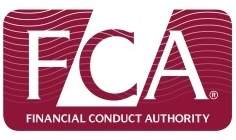
From the 1 April 2014, the Financial Conduct Authority took over regulation of the consumer credit market from the Office of Fair Trading. So far, you may feel this won’t affect you to any great extent, but the FCA regime is very different to that of its predecessor, and there are measures you need to take in to stay compliant. It’s critical that you adopt measures which are compliant with the FCA rules as this is a statutory regulator with wide-ranging powers. However, meeting the FCA’s rules needn’t be something that slows your business down. In fact, you might eventually find that it has been a good catalyst to help you streamline and refine certain areas of your business.
The starting point is to ascertain whether you need limited or full permissions. The most likely scenario is that you’ll need limited permissions, as the activities regulated by the FCA make up only part of your business, but it’s worth checking the definition of limited permission in the FCA’s consumer credit-specific sourcebook, CONC. So, as a firm with limited permissions, what new responsibilities are you facing under FCA regulation?
In order to become authorised, which is mandatory in order for you to trade legally in the new regulatory environment, you will need to prepare a regulatory business plan. The level of detail that your plan goes into should be proportionate to the complexity and scale of your business, providing information on customers, products and procedures.
You need to have a robust and demonstrable knowledge of your firm’s key risks, and have a mitigation plan to deal with them when they crop up.
‘Treating Customers Fairly’ (TCF) is one of the FCA’s key focus areas and all of its rules are designed to put consumers in an advantageous position. This approach isn’t peculiar to consumer credit; TCF is also one of the FCA’s major objectives for financial advisory firms. Bearing this in mind, you will also be required to have a TCF plan, detailing procedures and management information, in place.
You will need to demonstrate the systems and controls you have in place in order to monitor your adherence to the FCA’s requirements.
How well do you really know your competitors?
Access the most comprehensive Company Profiles on the market, powered by GlobalData. Save hours of research. Gain competitive edge.

Thank you!
Your download email will arrive shortly
Not ready to buy yet? Download a free sample
We are confident about the unique quality of our Company Profiles. However, we want you to make the most beneficial decision for your business, so we offer a free sample that you can download by submitting the below form
By GlobalDataOnce you’ve become FCA authorised, you will be required to report regularly management information to the FCA. To avoid a last minute rush, I’d recommend that you get the mechanisms through which you’re going to report in place as far in advance as you can.
You will need to demonstrate that you have a process of compliance monitoring and have the documentation in place to prove your claims. This must cover record-keeping, complaints handling, reporting requirements, and protecting customer interests.
It’s essential that you also confirm and document your approach to market abuse and financial crime.
You will also need to meet the approved persons requirements, and state who the controller is within your organisation.
There are groups, one of which is the Consumer Credit Centre (CCC), which can help to ease this regulatory burden and leave you to concentrate on the bits of your business which you enjoy and which are profitable.
Most professionals who are familiar with the FCA regime recommend that you outsource to an organisation like CCC, as the alternative may put the brakes on your business.
David Golder is director of client proposition at Simply Biz







